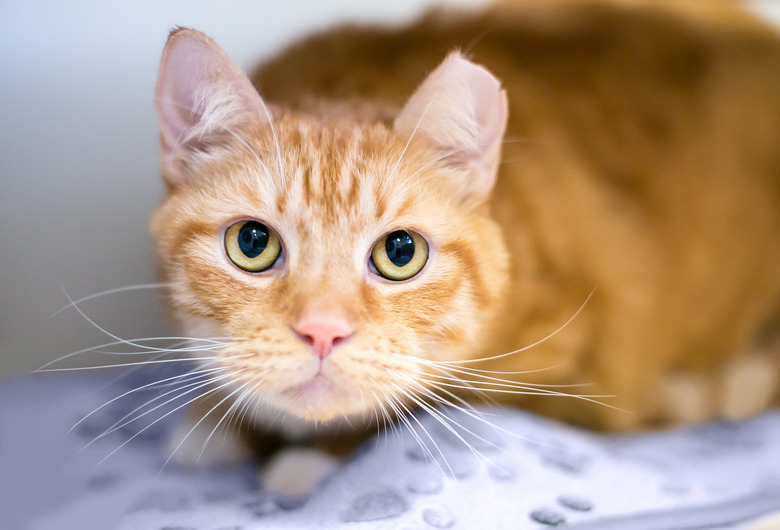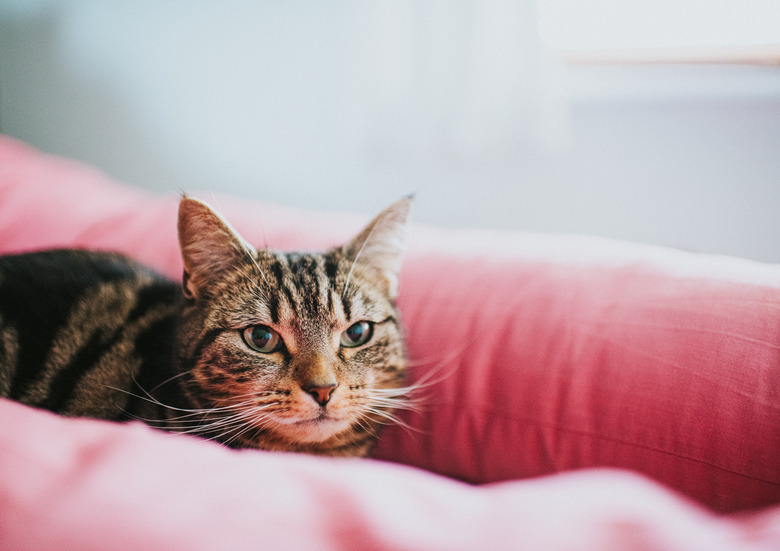Why Doesn't My Cat Meow?
If you've ever lived with a cat, then you've probably acquired a working knowledge of what they're communicating based on the different sounds they make. From urgent yowling to refill food dishes to the contented purrs at the end of a day, cats typically fill the household with meows.
But some cats may not meow much, if at all. Is it normal for cats to be quiet? Is it unnatural? Furthermore, what does it mean when a cat doesn't meow?
Is it normal for cats to not meow?
Is it normal for cats to not meow?
Although meowing may seem like your cat's natural form of communication, many biologists theorize that felines developed the meow specifically to communicate with humans.
Research from Dr. John Bradshaw, an anthropologist with the University of Bristol, has popularized the theory that cats primarily meow for the benefit of humans. "With feral cats, you get a meow about once every hundred hours," says Bradshaw. So if you suspect that your cat is trying to tell you something by vocalizing, you're probably right.
Many cats will not vocalize when there aren't any humans around to hear them. Additionally, cats generally do not meow to one another, and they certainly do not meow when alone. If your mouser isn't much of a "meower," then silence is nothing to worry about.
However, if your ordinarily vocal kitty stops meowing for long periods of time, you may have cause for concern.
Reasons a cat doesn’t meow
Reasons a cat doesn't meow
When your normally chatty cat has gone quiet and you suspect that the issue is medical, here are a few common reasons a cat may stop meowing.
If you have a feeling that your moggie is suffering from any of these illnesses detailed below, be sure to follow up with your veterinarian.
Upper respiratory infection
Upper respiratory infection
An upper respiratory infection in cats can cause laryngitis and hoarseness. The discomfort from either of these symptoms could cause your kitty to suddenly go quiet.
Your cat may also show symptoms of sneezing, coughing, swelling around the eyes, and discharge from their nose. Your veterinarian will likely treat an upper respiratory infection with antibiotics.
Hyperthyroidism
Hyperthyroidism
Hyperthyroidism is more common in middle-aged and senior cats, typically presenting around 7 years of age. While the more common symptoms of hyperthyroidism in cats are frequent urination, incontinence, and weight loss, this disorder is also known to cause hoarseness, too. So when your cat's voice box is swollen and irritated, they are less likely to vocalize.
Your veterinarian may recommend a number of treatments, depending on the severity and progression of the disease. Yet, many cats can successfully manage hypothyroidism with a daily dose of methimazole, which blocks the production of thyroid hormone.
Tumors, polyps, and other growths
Tumors, polyps, and other growths
Growths, such as tumors or polyps, along the throat and vocal cords can cause inflammation that makes vocalizing painful for cats. If your cat struggles to breathe, wheezes, coughs, or sneezes, it's best to take them to the veterinarian for a check-up. While many growths can be benign, some can be signs of feline cancer.
In many instances, cats choose to be silent. It's truly nothing to worry about. But if your cat's silence is accompanied by other symptoms, then it's prudent to involve your veterinarian.
Which cat breeds don’t meow?
Which cat breeds don't meow?
Regardless of breed or mix of breeds, any cat can be either on the quiet or noisy side. It boils down to your mouser's unique personality. However, many cat lovers report that certain breeds are less vocal than others.
According to "The Big Book of Cats" (Suares, 2004), the quietest cat breeds are:
- Chartreux
- Cornish Rex
- Persian
- Ragdoll
- Russian blue
Cat breeds that meow the most
Cat breeds that meow the most
Some cats may communicate more than others and while it's mostly related to personality, the type of breed also plays a role. Again, according to "The Big Book of Cats," the breeds that meow the most are:
- Bengal
- Birman
- Burmese
- Maine Coon
- Oriental shorthair
- Peterbald
- Siamese
- Sphynx
Siamese cats and Main Coons are notorious for mews, chirps, squeaks, and other fun noises, especially when they're feeling playful.
In summary
In summary
Cats can be shy, just like humans. Your kitty may need encouragement to communicate vocally, but if yours simply enjoys being silent, there's no need to worry. Just accept your friend for who they are.
Felines are often quiet companions. If yours doesn't like to meow, then consider yourself lucky. Many cat parents are troubled by their cat who meows too much!


